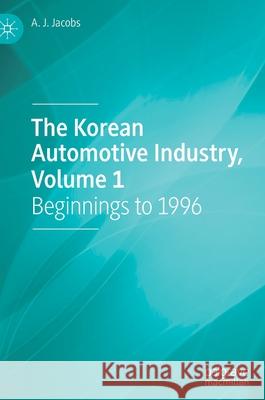The Korean Automotive Industry, Volume 1: Beginnings to 1996 » książka
topmenu
The Korean Automotive Industry, Volume 1: Beginnings to 1996
ISBN-13: 9783030863463 / Angielski / Twarda / 2021 / 436 str.
The Korean Automotive Industry, Volume 1: Beginnings to 1996
ISBN-13: 9783030863463 / Angielski / Twarda / 2021 / 436 str.
cena 603,81
(netto: 575,06 VAT: 5%)
Najniższa cena z 30 dni: 539,74
(netto: 575,06 VAT: 5%)
Najniższa cena z 30 dni: 539,74
Termin realizacji zamówienia:
ok. 22 dni roboczych.
ok. 22 dni roboczych.
Darmowa dostawa!
Kategorie:
Kategorie BISAC:
Wydawca:
Palgrave MacMillan
Język:
Angielski
ISBN-13:
9783030863463
Rok wydania:
2021
Wydanie:
2022
Ilość stron:
436
Waga:
0.72 kg
Wymiary:
21.01 x 14.81 x 2.87
Oprawa:
Twarda
Wolumenów:
01
Dodatkowe informacje:
Wydanie ilustrowane











